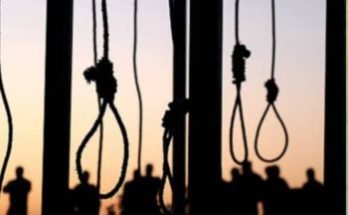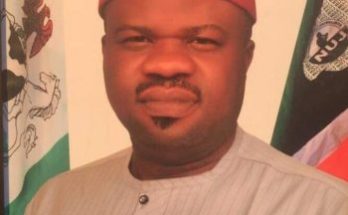It is said that a problem identified is a problem half solved; that is why experts and stakeholders concerned about insecurity in Nigeria are lending their voices to the discussions and proffering solutions, SUNNY IDACHABA examines their contributions.
Insecurity has refused to abate in Nigeria despite humongous investments in support of defence and security formations. Just last week when a meeting on insecurity in the North-west region organised by Northern Governors Forum, United Nations Development Programme, and other critical stakeholders in the North was going on at the Government House Katsina with the Vice President Kashim Shettima in attendance, news about the killing of Deputy Vice Chancellor, Research, Innovation and Development, Usman Danfodio University Sokoto, Prof Yusuf Saidu filtered in. The late professor was killed on his way from Sokoto to Kaduna.
For a long time now, the entire North-west region has been under the terror of bandits with farmers and residents in Zamfara, Katsina, Kebbi and parts of northern Niger state living in fears.
In the North-east, insurgency has held sway since 2009 despite military campaigns. Same applies to the North-central where farmers/herders clashes have made lives unbearable; in the South-east, ‘unknown gunmen’ and sectional agitators have affected the commercial life of the region.
There has been militancy in the South-south region and widespread kidnapping in the South-west. In essence, every part of the country is bleeding from the fallouts of security lapses.
At the security summit in Katsina, President Bola Tinubu, who was represented by the vice president, identified the lingering security situation bedeviling the country generally and North-west region, in particular, as inherited security compromises.
According to Tinubu, “Banditry and insurgency facing the country is as a result of historical injustices meted out to victims of conflicts over the years. We realised that achieving the peace we seek necessitates addressing those historical injustices that have torn communities apart.
“We must also reverse the institutional frailties governing security and the economic dysfunctions that create vulnerabilities to crimes and the ideological mischiefs that has pervaded the discourse of peace/ security in the region,” the president noted.
Scholars’ view
Although the president blamed the lingering insecurity on historical injustices, scholars however held different views.
At an inaugural lecture on the theme: ‘The Imperative of Securing Nigerian Society’ delivered by Prof Sam Odoh Odoma of Bingham University New Karu last week, this professor of Criminology and Deviant Behaviour noted that of all the causes of insecurity in Nigeria, intra/inter feuds among officers and men of security organisations saddled with the responsibility of securing the country top most.
He noted that although a country may have the best Armed Forces in terms of training and equipment, just like an efficient Police Force, Customs, DSS and other security formations, but said the same country can remain insecure as long as misunderstandings among the ranks of those security apparatuses exist.
According to him, “It is these agencies as vanguards of security that sum up our security architecture. Surprisingly, the experiences in the past few decades in many parts of Nigeria have shown how prone-to-hatred, in-fighting these agencies have become thereby exposing the nation and her citizens to the vicissitudes of threats because even the security agencies themselves were not spared.
“The operatives who are the arrowheads of our security architecture are often attacked and, in many instances, killed like common criminals, thereby sending dangerous signals to the citizens that they too are not secured.”
He went down memory lane to state that the first instance of inter-agency feud in Nigeria was recorded on November 9, 1977 between policemen and soldiers in Port Harcourt leading to the death of several policemen with others injured.
He said in the process many civilians deserted their homes as policemen were withdrawn from their duty posts for their own safety thereby fueling more tension and threat to the life of residents.
“Since then, the crisis has repeated itself in several parts of the country with attendant grave implications as loss of lives and property, with reported deaths of both operatives and civilian population exacerbating security challenges for the nation.”
Inter-agency feud
Giving a statistics of army/police clashes, he said on September 6, 1992 in Yaba Lagos, an army Colonel was killed at a check point due to lawlessness among security men. On July 6, 2004 at Ikeja area of Lagos state, a soldier was killed while 25 police men were mortally wounded over clashes resulting in day-long gridlock and hindering of economic activities.
Others, he noted, included police/army clash at Ojuelegba also in Lagos on October 4, 2005 in which two policemen and three civilians were killed where six soldiers and two policemen and several civilians were wounded. In the process, he said, Area C Police Station, a police barrack and vehicles were burnt while several detainees were unlawfully released.
Again, in Bauchi on January 16, 2006, the clash between army and policemen led to the burning of Bayan-Gari Police Officers Mess with several days of tension and insecurity in the area.
“On September 24, 2006 at FESTAC town in Lagos, similar clash, he said, led to the burning of Satellite Town Police Station and confusion among the civil populace. Even though there was no reported case of death in that particular incident, three soldiers and a policeman were wounded.
“At Orile area of Lagos on May 29 2009, a soldier was killed with several policemen wounded. More recently in Benin on February 11 2010, two soldiers and three Mobile Policemen were killed while 10 persons were wounded.
“On June 1, 2022 in Numan Adamawa state, a soldier was killed and there was apprehension among the civil populace as a result of soldiers/police clash. In Jalingo on March 20 2023, two police officers were killed with several policemen wounded in a similar clash when operatives of the two security organisations clashed.
Intra-agency feud
The university don noted that intra-agency feud has also reared its ugly head in the security agencies. According to him, on July 30, 2020 in Borno state, the Nigeria Army announced an incident where a soldier killed a senior colleague for inexplicable reason.
“On November 17 also in Borno, a soldier reportedly killed a colleague and injured a pilot. On March 5, 2023 in Sokoto state, it was reported that a soldier killed his Commander, two others and later killed himself over unknown reason.
“Also, in Sokoto on March 6, a soldier committed suicide after killing his Commander and two other colleagues due to a hot argument. On August 6 2023 in Yola, a female soldier gunned down a Captain over disagreement,” he stated.
Within the rank of the Nigeria Police Force, Prof Odoma said the same intra agency feud has been reported a number of times. Citing incidents. He noted that on October 17, 2022 in Abia state, a police officer shot a colleague after a hot argument.
Similarly, he said on June 24 2023, a police Inspector killed a colleague in Kaduna and also on June 27 2023, an Inspector was arrested for attempting to kill a colleague in the state, among many other instances.
He said as long as animosity such as this exists among security agencies, intelligence gathering and information sharing coupled with the expected synergy among them would become difficult.
In all of these he said, “If security operatives die to the bullets of own colleagues in such questionable circumstances, the citizens are not safe. It further suggests that criminals can easily infiltrate their ranks and cause damage both to the security architecture and civil populace.”
Implications on national security
As a result of the lack of synergy among security operatives, he said, criminals have assumed different nomenclatures such as ‘unknown gunmen’, ‘bandits’ and ‘militants’, terms that were not common in Nigeria before.
For unknown gunmen he said, “The activities of these men of the underworld have become deadlier in every part of the country and thus paint a gloomy picture of our security system because of the lack of inter and intra agency synergy required for a robust security system. Their activities have flourished uncontrollably as it seems the entire security architecture has been infiltrated.”
It is for this reason, he said, the security system was becoming vulnerable such that bandits had the temerity to ambush Nigerian soldiers in Katsina and killed 16 on July 19, 2020; terrorists that attacked the Presidential Guards in Abuja and killed eight soldiers on July 26 2022; the gunmen that killed five security operatives along Enugu/Abakiliki Highway on January 31 2023.
In the same vein, another set of gunmen attacked and beheaded two soldiers in Imo state on May 2 2022.
More recently, he noted, was the mindless attack on soldiers in Delta state on March 14, 2024 in which 16 gallant officers were murdered and on March 23 in same Delta where six policemen were killed and others missing, amidst several attacks on military and police formations and civilian population across the country.
In all of this, he said, investment in the economy nosedive with increased poverty. Also, he said national image dwindles, violent crimes become the order of the day as brain drain syndrome bleeds the nation helplessly and lately, farmers are afraid of entering their farms leading to low food output and ultimately famine.
Causes
Prof Odoma identified superiority struggles, economic poverty, involvement in illegal business, lack of regards for other agencies, among others, as major causes of inter/intra feuds among security operatives.
He disclosed that often times, the feud rarely occurs when they on official duties such as Joint Security Taskforce, but when on personal outings to augment their meagre earnings.
Way out
As a way out of this unwarranted wasting of lives and lingering insecurity, he advocated for enforcement of collaboration as enshrined in the constitution.
“To this end, the constitution of the nation clearly emphasises the need for collaboration among the agencies such that they can effectively deal with security issues in the interest of the nation. Proper remuneration/welfare/insurance package should be worked out for these men who lay down their lives for the safety of others, he said.
Analysts’ views
For the Executive Director, Cleen Foundation, Mr. Gad Peters, “The concern over the years has been that governments do not seem to care about research findings to make use of them. Most times, those findings are merely left at the level of discourse without key actors like the police, DSS, army giving it a second look.”
According to him, government needs to redesign the security architecture such that it would be centered around the people.
On his part, the CEO of Beacon Consulting, Dr Kabir Adamu, in a chat with Blueprint Weekend on the sideline of the security summit in Katsina said part of the take-home from the summit was the creation of framework to addressing insecurity.
“Of late, the government is addressing the root cause of insecurity through the adoption of models that would work and identifying those that do not work. For instance, it is important to examine why in Kano and Jigawa, there is no banditry but relative peace unlike states like Zamfara, Katsina and Kebbi. Identifying those models would address the problem nationwide.”




